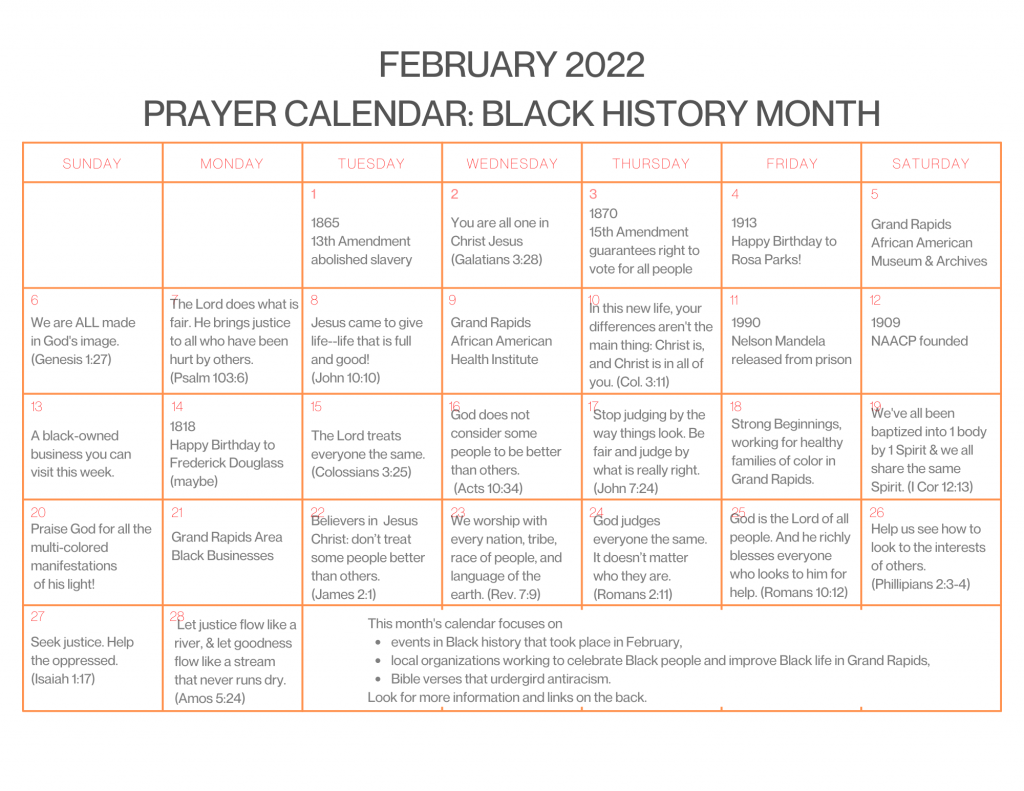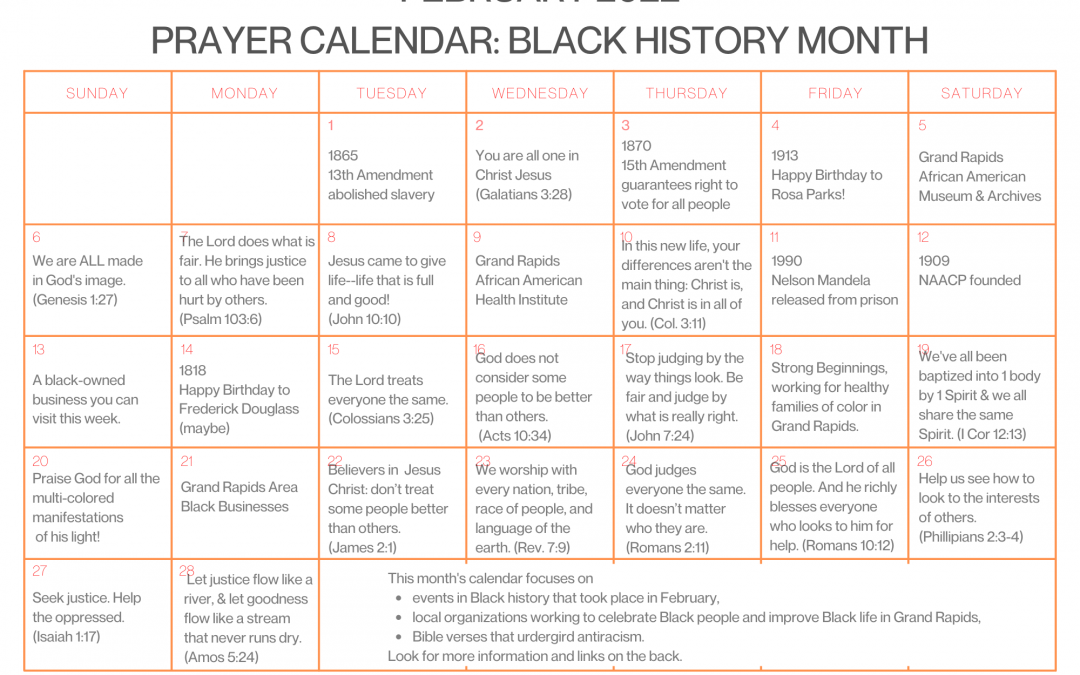
| Feb. 1, 1965 | The United States may have passed the Amendment to the Constitution that made slavery illegal, but slave-owning states were slow to tell slaves about it. It took until June 19 for the word to reach slaves in Texas. Even after that, lots of cities, churches, businesses, and people still treated Black people the same as when they were slaves.
|
| Feb. 3, 1870 | This Amendment may have guaranteed the right to vote to all people, but in reality, that’s not how it worked. Women couldn’t vote until 1920, and Black men and women couldn’t vote in a lot of cities and states until the Voting Rights Act was passed in 1965. Some states are still trying to make it hard for Black and Brown people to vote.
|
| Feb. 4, 1913 | Happy Birthday to Rosa Parks! She was a Black civil rights activist who refused to move to the back of a city bus so a White lady could sit in her spot. Rosa Parks was arrested, but justice organizations argued against her arrest in the courts. It got all the way to the Supreme Court, and bus segregation was declared unconstitutional under the Equal Protection Clause of the 14th Amendment to the U.S. Constitution.
|
| Feb. 5 | The Grand Rapids African American Museum and Archives is at 87 Monroe Center. Its many collections reflect the unique historical and cultural contributions of local African Americans and people of color upon North America and globally. Plan a visit: https://www.graama.org/.
|
| Feb. 9 | The Grand Rapids African American Health Institute works to improve fairness in health care and better health outcomes for African American people in Grand Rapids. Find out more: https://graahi.com/.
|
| Feb. 11, 1990 | Nelson Mandela lived in South Africa during a time called apartheid—a time when Black people and people from other racial groups did not have the same political and economic rights as White people and were forced to live separately from White people. He fought against this and the government put him in jail for life. But in 1990, he was released, and negotiated with the government at the time for an end to apartheid. He was elected the first Black President of South Africa in 1994.
|
| Feb. 12, 1909 | The NAACP is the National Association for the Advancement of Colored People. It was started to get the U.S. to live up to those Constitutional Amendments that promised an end to slavery, to provide equal protection of the law, and the right for all people to vote. They still exist, and work to ensure the political and educational equality of minority group citizens of States and to eliminate race prejudice.
|
| Feb. 13 | For a directory of black-owned businesses: https://grabblocal.com/directory-businesses/
|
| Feb. 14, 1818 | The truth is that Frederick Douglass didn’t even know when he was born—not the month or even the year. That’s one effect of slavery we don’t think about: he was not considered enough of a person for anyone to take note of when he was born. So he chose Feb. 14, 1818 and that is when we celebrate him. He escaped from slavery and wrote powerful books about his life as a slave. He became an important speaker against slavery and for the rights of free slaves.
|
| Feb. 18 | Strong Beginnings is really 8 organizations that works to improve health for mothers and children in communities of color in Grand Rapids. https://www.strongbeginningskent.org/
|
| Feb. 21 | Grand Rapids Area Black Businesses is an economic and business development organization launching several programs and initiatives aimed at increasing economic equity and creating wealth through entrepreneurship for Black residents in the Greater Grand Rapids Area and beyond. https://grabblocal.com/
|
To find lots of great books by Black authors and illustrators for children and young people, explore this list of all the Coretta Scott King Book Award recipients from the American Library Association: https://www.ala.org/rt/emiert/

